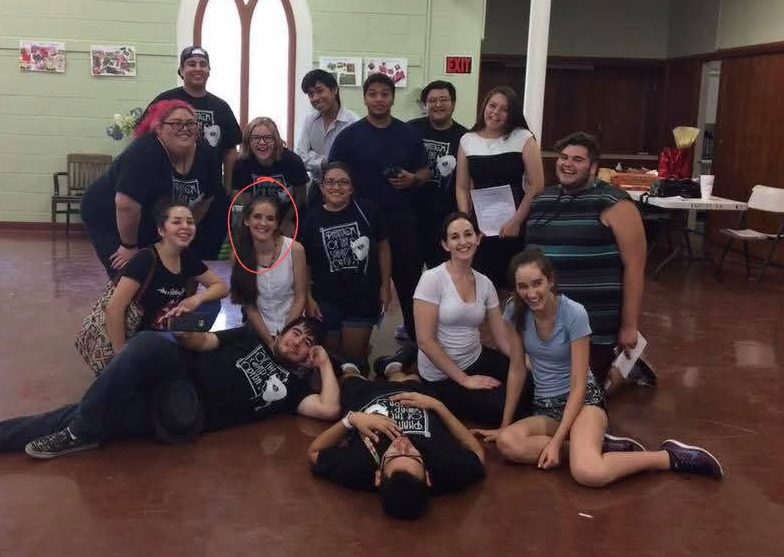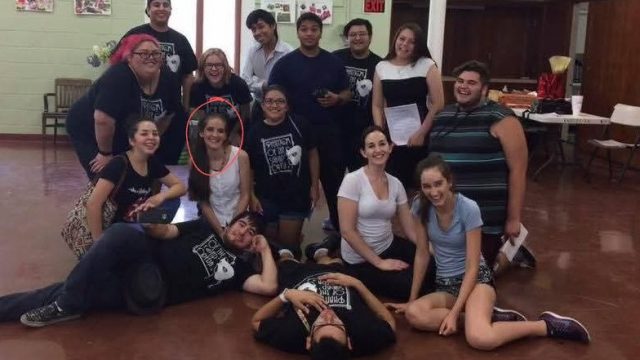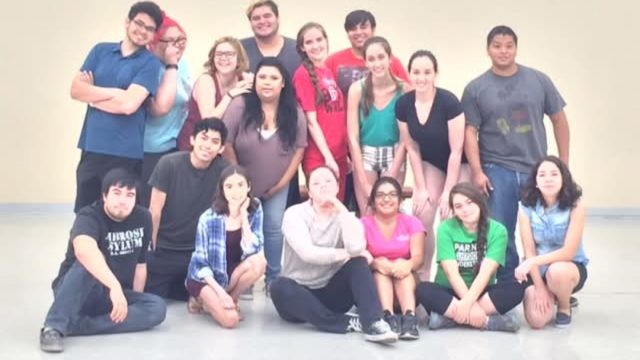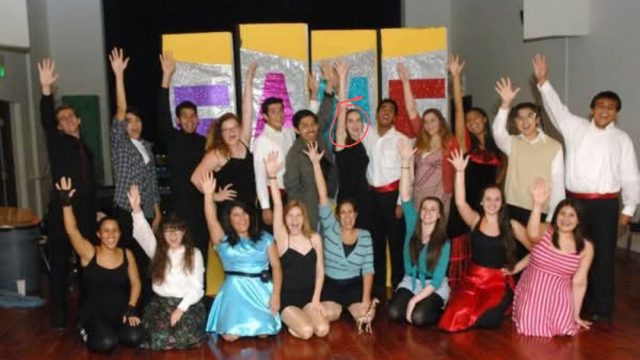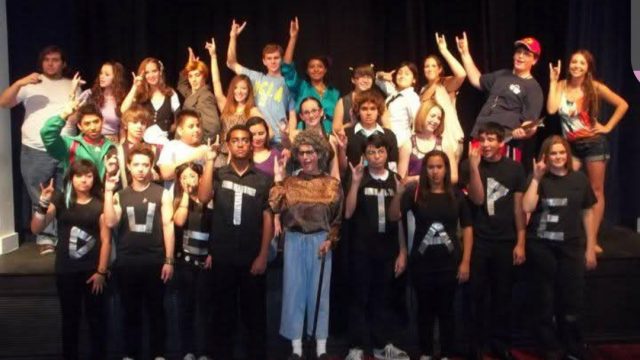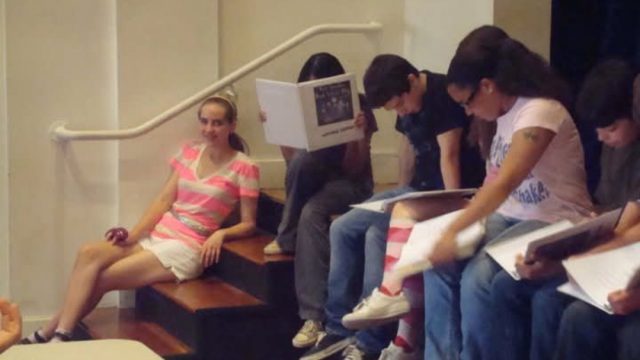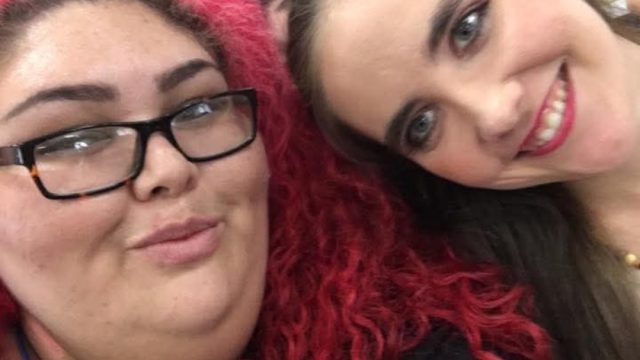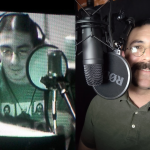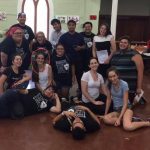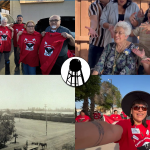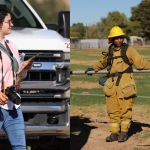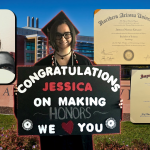written by sharon burns
edited by sarina e. guerra
I didn’t set out to be a tutor. Actually, when my husband first suggested I apply to be one at Imperial Valley College, I wasn’t all that excited. I’d tried tutoring once back when I was in college, and—well—it didn’t exactly go great. I remember walking out of one of those early sessions thinking, “Maybe this just isn’t for me.”
But I gave it another shot, this time at IVC. A few months in, something clicked. I found myself looking forward to sessions, especially with English students. I loved watching their ideas come alive on paper, loved the look on their faces when they realized they did have something important to say. What started as a hesitant “I guess I’ll try it” became a deep love for teaching language—especially in a place like El Centro, where English and Spanish dance side by side in everyday life.
Language has always felt personal to me. I grew up speaking English, but Spanish has been in my ears and around my life for as long as I can remember. Living in the Imperial Valley, you see every shade of bilingualism—from kids who grew up translating for their parents, to adults trying to sharpen their English for work, to students whose essays mix languages in the most poetic ways. It’s beautiful. It’s complex.

One student I’ll never forget is Ana. I met her while tutoring at IVC for English 110. She was quiet when we first started—kind, but unsure of herself. Her wrist was permanently bent forward, which made writing a slow, physically demanding process. You could see how much effort every sentence took. She worried her writing wasn’t good enough, that she was too far behind.
But from the beginning, I saw how thoughtful she was—how much she cared about saying things clearly and honestly. We worked together week after week, often going over drafts line by line. At first, she hesitated with every word. But slowly, her confidence began to grow. She started asking bigger questions, experimenting with her voice, pushing herself to take risks in her writing.
One of her essays that has stuck with me the most was a reflection on Mary Shelley’s Frankenstein.
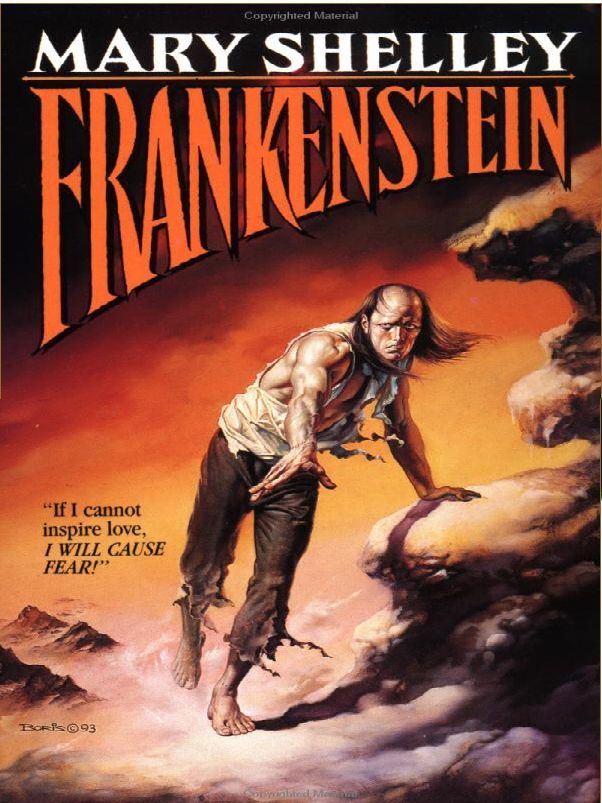
Ana wrote about how the creature wasn’t born a monster—he was made one by the way he was treated, especially by Victor Frankenstein, who created him and then abandoned him. Ana saw herself in the creature’s loneliness and the way people judged him without understanding him. She shared that, growing up, she’d been bullied and stared at because of her hand, and how isolating that felt. But her writing didn’t come from a place of self-pity—it came from a deep empathy and a sharp sense of justice. “It wasn’t the creature’s fault,” she wrote, “He just wanted to be loved, but no one ever gave him a chance.”
It wasn’t just about grammar—it was about showing up on the page and saying…

Over time, we developed a kind of professional friendship. We’d chat about class, about life, sometimes just about how frustrating English essays could be. She taught me so much about persistence—about what it means to keep showing up even when something feels impossibly hard. Watching her finish that course with strong writing and a proud sense of ownership over her work was one of the most rewarding moments of my tutoring life.
These days, I split my time between tutoring students at Imperial Valley College and working with learners through my own small, home-based tutoring business—sometimes in quiet corners of local libraries, sometimes over video calls from the couch, with a cup of coffee in hand and my cat curled up beside me.
That’s real life. I don’t mind. I’m not running a big company. I’m your neighbor who loves words and wants to help you find your own.
I also help students navigate tech related challenges—like getting wrongly flagged for using AI in their writing. It’s discouraging, especially for students who already feel nervous about their English. I can imagine it feels like they’ve done something wrong. So, I help them build the confidence to get through anything by documenting their writing process and celebrating progress both big and small. In some cases, I’ve even had to help students draft emails to their teachers explaining how they got from blank page to final draft. The widespread concern with AI taking the place of students producing original work is real, and programs designed to distinguish between the two aren’t exactly foolproof. But despite these complications, I want learners to know that what they have to say matters, even when technology misunderstands it.
I sometimes think about this one time at summer camp when I was a teenager, where I got to be the lead in a little theatre production. One night, during a scene, I accidentally made eye contact with someone in the audience—and completely froze. My mind just went blank, like I didn’t know what words were for a moment. I was so lucky the pianist was right there offstage to quietly nudge me back to my line. To keep it natural, I whispered, “What was that voice?” and then got right back into character. When I finally walked offstage, I felt a little silly—but also pretty proud of myself for bouncing back. That moment stuck with me because it showed me something important about learning and language: we all stumble sometimes, even in our native languages, and it’s okay to need a little help. What really matters is that we get back up and keep trying to connect with one another. That’s how I see tutoring now—it’s not about being perfect, it’s about finding your own voice and sharing it. After all, the show must go on…

At first reaching out might be scary, it might make you a little nervous, but I promise you it’s worth it. I love what I do. It’s like watching someone become the author of their own story with confidence, and honestly, it’s one of the most rewarding parts of tutoring.
If writing feels tricky or you just want someone to listen and help you make sense of your words, I’d love to work with you. We’ll tackle grammar and all those tricky rules together—but in a space that’s friendly and judgment-free. It’s all about helping you feel confident enough to use your voice and express your thoughts to the world. And who knows? You might even end up loving English a little bit, too. And maybe, for the first time ever, you’ll be able to see yourself reflected back at you when you look at the page.
If you’d like to see more success stories and take the leap toward becoming a more confident English speaker, visit burnstutor.com, reach out via the contact form, email Sharon directly at sharonburnstutor@gmail.com, or call 760-676-2920.
Want to support People’s Press?

